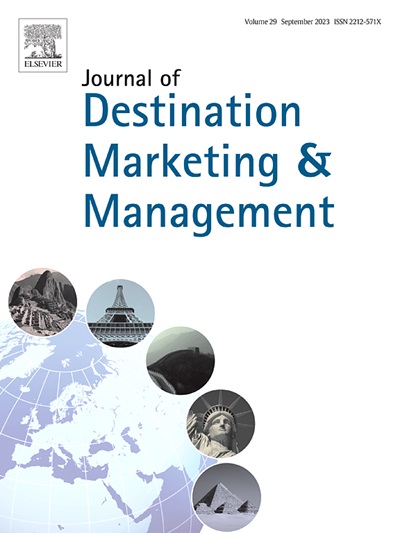Weather adaptation strategies in tourism
IF 7.4
2区 管理学
Q1 HOSPITALITY, LEISURE, SPORT & TOURISM
引用次数: 0
Abstract
Weather conditions impact tourism experiences and influence travel decisions. Nevertheless, studies tend to focus on climate change, with limited research investigating how tourism destinations can prepare for and adapt to day-to-day weather variability. The conceptual ‘Weather Adaptation Model for Destination Typologies’ is proposed, depicting the complex relationship between weather adaptation strategies and managerial interventions. By using a systematic narrative review, this study critically examines the weather-based adaptation strategies available to tourism operators, with emergent findings revealing four key adaptation directions: exiting, protecting, expanding, and sharing. As a result of this review, the ‘Weather Adaptation Managerial Toolkit’ has been developed, comprising seven tools and measures, offering practical insights for formulating and implementing weather adaptation strategies. Furthermore, policy interventions that destination managers, policymakers, and businesses can leverage to mitigate the impact of weather variability on tourism destinations of various typologies are articulated. The paper underscores the emerging field of collective efforts, sustainability, and strategic adaptation measures to navigate the complexities of weather-related challenges in the context of tourism.
旅游中的天气适应策略
天气状况影响旅游体验,影响旅游决策。然而,研究往往集中在气候变化上,关于旅游目的地如何准备和适应日常天气变化的研究有限。提出了概念性的“目的地类型的天气适应模型”,描述了天气适应策略和管理干预之间的复杂关系。通过系统的叙述回顾,本研究批判性地考察了旅游经营者可用的基于天气的适应策略,并揭示了四个关键的适应方向:退出、保护、扩展和共享。经过这一审查,“天气适应管理工具包”已经开发出来,其中包括七个工具和措施,为制定和实施天气适应战略提供了实际的见解。此外,还阐述了目的地管理者、政策制定者和企业可以利用的政策干预措施,以减轻天气变化对各种类型旅游目的地的影响。本文强调了在旅游业背景下,通过集体努力、可持续性和战略适应措施来应对复杂的天气相关挑战的新兴领域。
本文章由计算机程序翻译,如有差异,请以英文原文为准。
求助全文
约1分钟内获得全文
求助全文
来源期刊
CiteScore
18.60
自引率
3.60%
发文量
46
审稿时长
43 days
期刊介绍:
The Journal of Destination Marketing & Management (JDMM) is an international journal that focuses on the study of tourist destinations, specifically their marketing and management. It aims to provide a critical understanding of all aspects of destination marketing and management, considering their unique contexts in terms of policy, planning, economics, geography, and history. The journal seeks to develop a strong theoretical foundation in this field by incorporating knowledge from various disciplinary approaches. Additionally, JDMM aims to promote critical thinking and innovation in destination marketing and management, expand the boundaries of knowledge, and serve as a platform for international idea exchange.

 求助内容:
求助内容: 应助结果提醒方式:
应助结果提醒方式:


